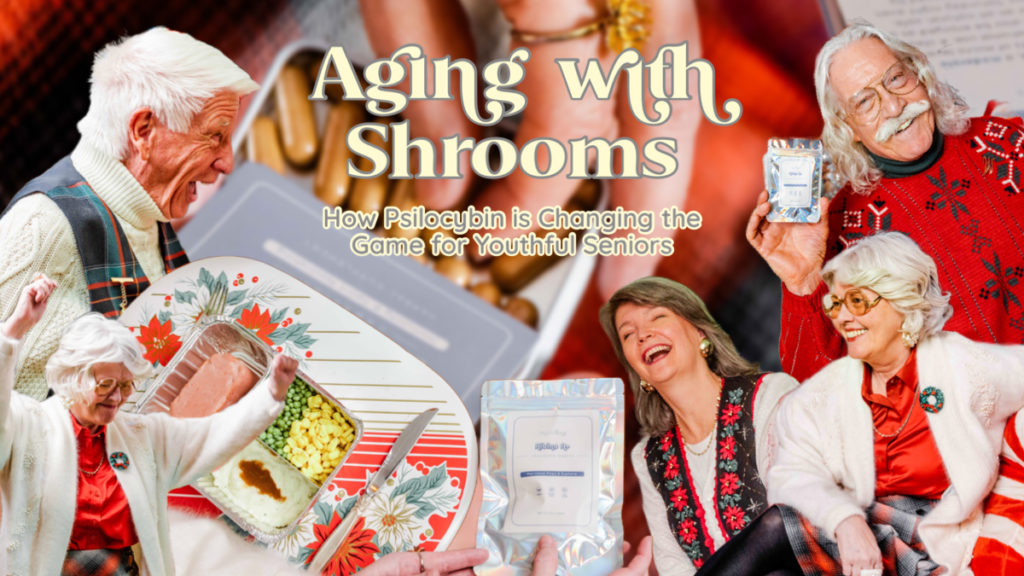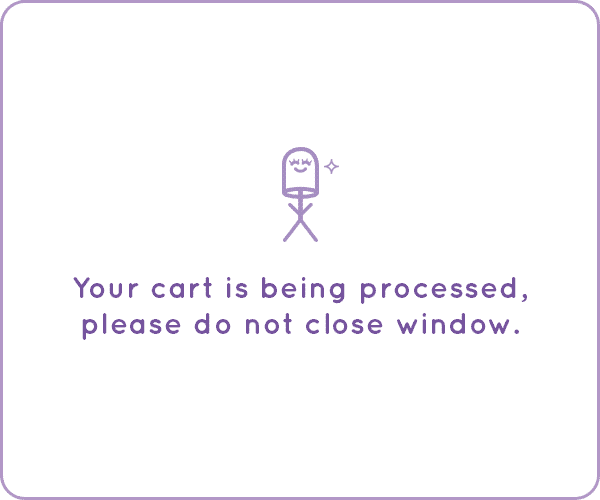Individuals who were alive in the vibrant 60s and 70s are surely no strangers to psilocybin. However, what they remember of it vs. what it is gaining recognition for now, may still experience a few degrees of separation.
Now, aging, it’s quite the journey, isn’t it? A blessing from many angles, but let’s face it – it comes with its own set of conditions that we’d rather not RSVP to. Enter alternative means of treatment — more specifically, psychedelic-assisted therapy.
As the years pile up, so do the potential unwanted companions: chronic pain, anxiety, insomnia, and depression. It’s like a menu of ailments, and we’re just scratching the surface. But hey, after living a solid portion of life, isn’t it time to kick back, relax, and have some fun? Whether you’ve been the office superhero or the family’s unsung hero, older ages deserve to embrace their later years with a positive mindset. And guess what? Psilocybin-assisted treatment and other psychedelic practices seem to be the cool kids on the block making that happen.
Older adults are unsurprisingly North America’s largest consumers of pharmaceutical drugs, and with nearly nine in ten (89%) individuals 65 and older reporting prescribed drug usage, the rollout of alternative options that have the capacity to even slightly reduce their dependence on the medication train, well, that sounds like a conversation worth having.
Consider the crowded pillbox of an older individual, filled to the brim with daily medications. Now, imagine that same person grappling with mental health conditions like depression or anxiety. In such cases, psychedelic-assisted treatment has not only proven to be effective but also stands out as a safe and non-addictive alternative.
Understandably, there has been a bit of hesitation in administering psychedelics to the older squad, with concerns about amplified sensitivity, particularly in those with pre-existing cardiovascular conditions. But fear not; the execution of psilocybin-assisted therapy follows something of a gold-standard approach, incorporating a series of goal-focused treatments, check-ups, and assessments to ensure the individual is fit for the treatment.
Potential Applications
The qualities of psilocybin when administered by a healthcare professional have been speculated to improve memory and well-being in Alzheimer’s patients, potentially attributed to its ability to promote neurogenesis and reduce neuroinflammation. While research on the efficacy of psilocybin regarding Alzheimer’s and dementia treatment requires further study, John Hopkins University Researchers are no strangers to psychedelic-assisted success—and are now calling for research volunteers suffering from depression and have been diagnosed with Alzheimer’s disease.
John Hopkins University has played a catalyst role in the breakthrough psilocybin research that has taken place over the last decade, including the treatment of alcoholism, smoking addiction, and treatment-resistant depression, all witnessing outstanding results via psilocybin-assisted therapy.
Among their success studies, psilocybin has proven its ability to assist in bringing means of healing to patients suffering from end-of-life distress upon receiving terminal illness diagnoses. Hopkins Researchers looked at patients suffering from cancer-related distress, who had been undergoing high levels of anxiety and depression as a result of their life-threatening cancer diagnosis, finding that upon psilocybin-assisted therapy, patients found that their symptoms relating to cancer-related distress were reduced drastically. So much so that at the 6-month follow-up mark, approximately 80% of the cancer patients exhibited clinically significant reductions in both anxiety and depression as a result of the initial psilocybin treatment. The patients sustained their improvements up to 4.5 years after the initial treatment, becoming a remarkable outcome in psilocybin research that is still being applauded today.
When we take into consideration the heightened susceptibility to isolation, loss, and health issues in older ages, opening up the conversation pertaining to depression and anxiety in seniors is a topic worth discussing. Today’s younger generations have made mental health matters a very common and open-minded discussion in recent years, which is why practices such as microdosing, general psychedelic use, and other alternative therapies have become so popular and well-received in today’s realm of young adults.
In patients suffering from treatment-resistant depression, researchers from Imperial College London found that at one week and three months after a high-dose treatment, there was a significant reduction in depressive symptoms compared to baseline, and improvements in anxiety and anhedonia (inability to feel pleasure) were also observed and sustained.
Treatment results such as these regarding end-of-life distress as well as major depression and anxiety disorders make us wonder about the efficacy of traditional antidepressants and if they are worth adding another pharmaceutical drug to our seniors’ pill regimens. When John Hopkins researchers studied psilocybin’s effect on patients with major depressive disorder, the study’s magnitude of effect was about four times larger than traditional antidepressants, and improvements were noted in just one week.
Psychedelics have already been named as a “breakthrough medicine” by the FDA, and patients who have received these types of treatments have even gone as far as to describe the psilocybin-assisted treatments as being “life-changing.” It’s showing time and time again that psychedelic-assisted treatment is not just about symptom management; it’s about sustainable remission.
Aging Gracefully with Psilocybin
Though there is no treatment nor supplement routine that can physically reverse aging, past research may actually suggest that psilocybin can produce an anti-aging effect over the mind and spirit.
As the years gracefully add up, our thinking tends to solidify. Enter psilocybin, the gentle disruptor of the aging status quo. A youthful mind is all about spontaneity, curiosity, playfulness, and openness – traits that sometimes take a back seat as the candles on the cake multiply. Psilocybin is like a subtle whisper reminding your brain of the joy of your inner child, enhancing the well-being and vitality of those who keep that spirit alive.
A single high dose of psilocybin found in “magic mushrooms” led to lasting personality changes, especially in openness, for almost 60% of participants who partook in a Johns Hopkins study. These changes surpassed typical shifts seen in healthy adults over decades. The trait of openness involves imagination, aesthetics, and broad-mindedness.
But there’s more! Psilocybin’s relationship with the brain’s DMN system can effectively disrupt old thought patterns, encouraging a more creative cadence in minds that might have become a tad too settled. A 2021 study in “Human Brain Mapping” hinted at this creative nudge, suggesting that consuming psilocybin was correlated with decreased DMN function and heightened connectivity in different brain regions. Translation: a subtle creative spark in the minds of the seasoned.
The grand idea here is to nurture new ways of thinking, foster open-mindedness, and develop richer connections as we gracefully age – and lo and behold, psilocybin might just be the gentle guide for this journey.
Now, about those seniors who’ve welcomed plant medicine and psilocybin into their lives – they’re not flaunting agelessness, but there’s a distinct aura of timeless wisdom and zest about them, giving your average twenty-something a run for their money to say the least.
While it only takes a few clicks to uncover the substantial benefits of psilocybin, it can still be intimidating. After all, psilocybin is a consciousness-altering drug that can cause profound shifts in thoughts and perception, and it’s not something grandma and grandpa are likely to “say a big fat heck yeah!” to right off the cuff. However, if your passion in fungi-based wellness is something you cannot help but promote to your older loved ones, opening up the conversation with non-psychoactive medicinal mushrooms such as Lion’s Mane, Reishi, and Cordyceps is a great way to open up that window of discussion, and better yet, functional mushrooms on their own host an expansive variety of benefits – including areas of neurogenesis, pain relief, and overall well-being in older ages.
Sources and other Information:
https://www.sciencedirect.com/science/article/abs/pii/S1064748122005012
https://www.frontiersin.org/articles/10.3389/fnsyn.2020.00034/full
https://hopkinspsychedelic.org/alzheimers
https://pubmed.ncbi.nlm.nih.gov/27909165/
https://pubmed.ncbi.nlm.nih.gov/27210031/
https://pubmed.ncbi.nlm.nih.gov/31634774/
https://journals.sagepub.com/doi/full/10.1177/02698811221092508



